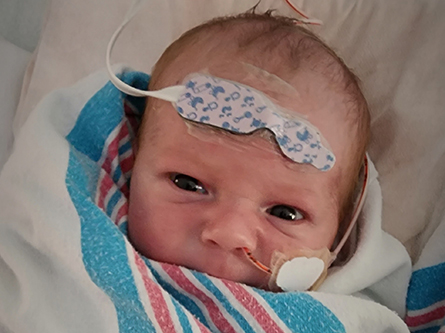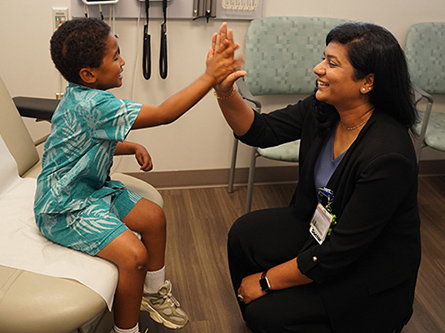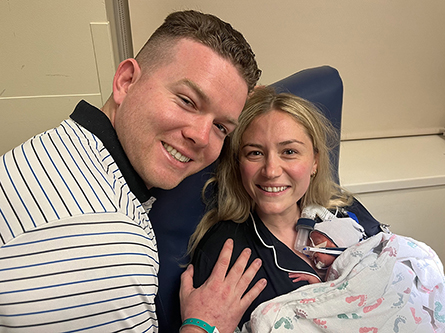When a routine ultrasound at 20 weeks revealed a potential heart defect in their developing baby, Stephanie and Travis Dover of Folsom were caught off guard. As the parents of six other children, including three who were born at home without issue, they had not faced something like this.
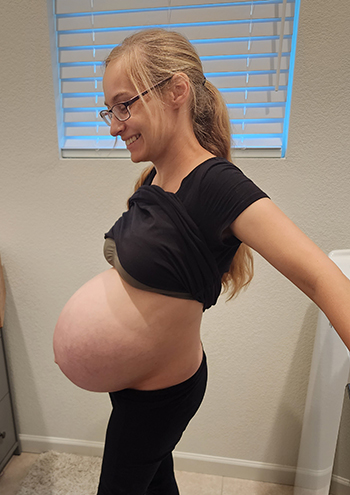
“I’m an ultrasound technician and I was not really worried at first. We often request additional pictures,” Travis Dover said. “But when I got the report, I didn’t believe it. I was like, ‘Oh my goodness. Really? This condition is like 1 in 3,000 to 4,000.’”
The ultrasound showed it was likely d-TGA, Dextro-Transposition of the Great Arteries. This birth defect involves the two main arteries carrying blood out of the heart. In cases of d-TGA, the arteries are switched in position, or “transposed”, which leaves the heart without oxygenated blood. Babies with d-TGA need surgery within days of birth.
Since the Dovers’ health care provider was not equipped to address the complex heart condition, the couple was referred to a health care provider in the Bay Area. It was a hardship finding child care for their children, who range in age from 2 to 12, but they found a babysitter. Then the couple made the initial two-hour trip for a fetal echocardiogram — a more detailed ultrasound of the baby’s heart.
A few more tests were run and then the reality of the situation set in. Their developing baby had a confirmed d-TGA diagnosis and needed treatment and they were more than two hours away from their home in Folsom.
“We immediately started trying to figure out where all of us could stay,” Travis Dover added. “We also needed someone to watch the kids while we were at the hospital. But our friends who could watch the kids are here. Our support system is here, not in the Bay Area.”
“The thought of having to travel outside of the area with all our kids was overwhelming,” Stephanie Dover added. “We did not know what we were going to do.”
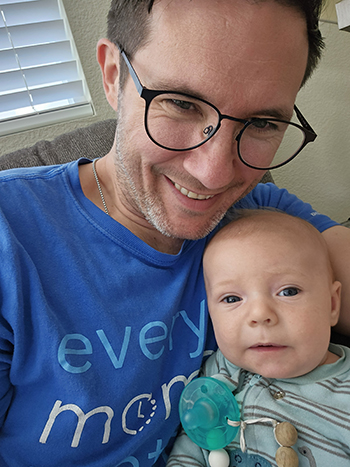
The logistics were daunting, and their baby would likely spend weeks in the hospital after delivery. How could they be away from home that long? The Dovers’ had just six short weeks to figure it out.
Stephanie made the initial call to UC Davis Children’s Hospital the week of Feb. 27, 2023. She was due in April. Time was ticking.
Specifically, she sought help from the UC Davis Fetal Care and Treatment Center. As the first comprehensive multidisciplinary fetal diagnosis and therapy center in inland Northern California, it includes internationally renowned physicians with the expertise the Dovers’ needed.


